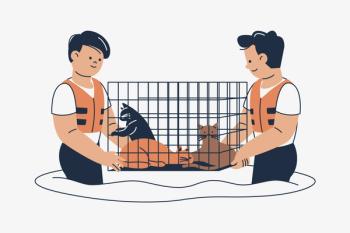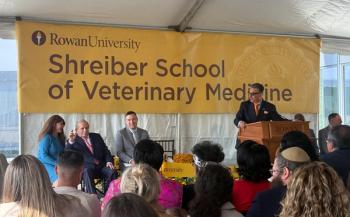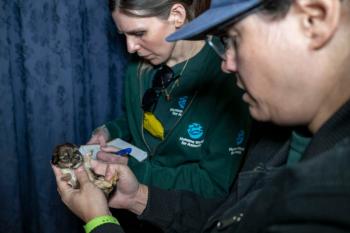
HBO documentary recounts case in which DVM received threats
Lake City, Iowa - An Iowa veterinarian says there's little more he can say about his testimony in 2007 trial just released in a documentary on HBO.
LAKE CITY, IOWA — An Iowa veterinarian says there's little more he can say or wishes to say about his testimony in a 2007 trial involving an Ohio hog-farm operation that led to his receiving hate mail and threats, now that a newly released HBO documentary is bringing the case back to public attention.
The 88-minute film, "Death on a Factory Farm," released in mid-March, is condensed from many hours of undercover footage obtained by a covert operative named "Pete," who was paid by the Humane Farming Association (HFA) in 2006 to document alleged abusive practices on a Creston, Ohio, hog farm. The group then took the video to Wayne County, Ohio, authorities and took out newspaper ads urging aggressive prosecution of the case.
The documentary includes part of a resulting 1.5-day trial before a judge in June 2007, during which the defense called Paul J. Armbrecht, DVM, of Lake City, Iowa, as an expert witness. Another veterinarian, Dr. Donald Sanders, of The Ohio State University, was an expert witness for the prosecution.
Some of the images in the first part of the film, told from the undercover agent's perspective, show various ways animals allegedly were treated, including euthanasia by hanging. Ten animal-cruelty charges were filed, but five were dismissed before trial and only one of the remaining five charges ended in conviction and a $250 fine against the owner's son. The owner was acquitted and reportedly has made changes in animal-handling practices on the farm since then.
Sanders testified at trial that he considered the practice of hanging sows to be animal cruelty. Armbrecht testified that he believed the practice didn't necessarily cause more pain than other methods of euthanasia. The judge then acquitted, citing conflicting expert opinions.
Afterward, the HFA urged its supporters to contact the Iowa state veterinary board seeking sanctions against Armbrecht, but the board took no action. Armbrecht tells DVM Newsmagazine that he received hundreds of phone complaints, letters and e-mails at the time, some containing threats against him and his family, and that U.S. Homeland Security considered the threats credible enough to keep him under observation for a time. Some of the complaints came from within the profession, he says.
There is nothing else to say about the case, Armbrecht says, except that "Viewing an 88-minute documentary is like the proverbial case of three blind guys trying to describe an elephant, one after being led to its trunk, another to a leg and another the tail. One believes it's a snake, another a tree and another a rope. Which of them got the true picture? Likewise, how many people who see this documentary will get the complete, true picture in its proper context?" The film was edited down from many hours and shows only a tiny part of 20-plus hours of the actual trial, he adds. "At this point, there isn't anything more to say. I simply choose to stay busy in my work."
Newsletter
From exam room tips to practice management insights, get trusted veterinary news delivered straight to your inbox—subscribe to dvm360.




